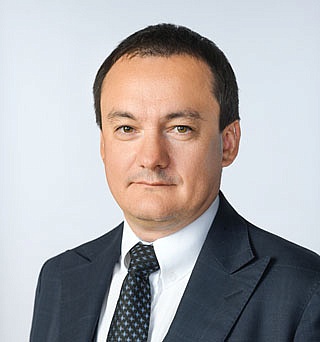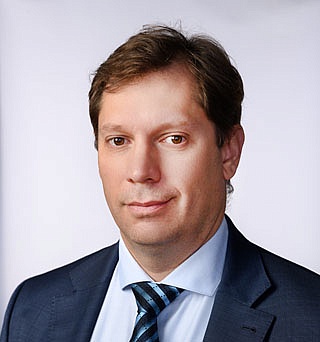Re-entering the Russian Market: Brand Protection Considerations for Foreign Businesses
29 April 2025Trademark Protection
Parallel Import
Enforcement
Conclusion
In recent years, geopolitical changes and economic shifts have greatly impacted global business. Some foreign companies reevaluated their presence in Russia due to sanctions, resulting in terminating or scaling back business operations. This opened the doors for new market players, especially from Asia and the Middle East, to establish themselves in Russia. Replacement brands have notably gained significant market shares, particularly in the automotive and apparel industries.
Re-establishing presence on the Russian market after a temporary absence can be a challenge for foreign companies, especially when it comes to intellectual property protection and brand promotion activities as well as competition with newly arrived players. This article aims to outline key considerations that trademark owners might encounter when contemplating a return to the Russian market.
Trademark Protection
The first thing to do when returning to the market is to make sure that the trademarks which will be used in Russia are duly registered or otherwise protected (e. g. by virtue of Madrid System dedicated to international protection of trademarks) and if necessary to extend the term of their protection if it expired during the company’s absence from the market assuming the grace period is available or to consider re-filing an application if the registration lapsed without any possibility for renewal.
Also, it is important to check whether trademarks or similar designations have been applied for registration or registered by third parties for similar goods and services in the absence of the original brand owner that could potentially prevent use of the mark by genuine right holder and import of the branded goods into Russia. If this happens, legal actions will be required to challenge the unlawful/unfair registration and there is only 5 years for filing invalidation action on the basis of similarity ground whereas invalidation action based on misleading as to the commercial origin of goods and/or unfair completion or abuse of rights can be filed any time during validity of the conflicting mark.
At that, recent practice of the Russian Trademark Office shows that unfair registrations are not allowed. A notable case involved a foreign brand that left Russia but still blocked a copycat registration. The Russian company attempted to register a Cyrillic version of «Dr.Pepper» for soft drinks, but the application was denied due to misrepresentation concerns, even though the original owner had terminated operations and abandoned related registrations in Russia. The Russian Trademark Office cited the brand’s long history and recognition among Russian consumers, despite lack of recent sales. The refusal was reinforced by the original owner’s opposition during the examination process.
Also, it is necessary to bear in mind that to maintain the validity of a trademark in Russia, it must be used.
Specifically, a trademark registration becomes vulnerable to cancellation due to non-use during any three years following the registration date. This implies that once this grace period elapses, any interested third party gains the right to initiate a cancellation action against the trademark registration on the basis of non-use. For brands that exited the Russian market in 2022, the three-year period of continuous non-use expires in 2025.
The burden of proving the use falls upon the trademark owner during the cancellation proceedings. This means that the cancellation action can rest solely on the assumption that the mark has remained unused in Russia over the past 3 years, leaving the trademark owner responsible for demonstrating evidence of use in Russia to retain the registration’s validity. It is worth noting that according to the use requirements adopted in Russia a trademark is considered as having been used if it has been used in Russia by the trademark owner himself or any other person under his control. Hence, the use of the mark through parallel import channels may not be deemed as a proper use as it cannot be controlled by the brand owner in full.
Failure to use a trademark leaves it vulnerable to attacks from squatters seeking to cancel globally recognized brands’ protection in Russia. Squatters often exploit non-use periods to submit bad-faith applications for identical or similar marks, aiming to secure registrations previously blocked due to prior rights.
For instance, the brand XIAOMI was attacked on the basis of non-use by a company which also had filed an application for a similar trademark «XIAOMI home» with respect to goods in Class 21. During the proceedings the trademark owner failed to produce relevant evidence of use of the trademark with respect to the goods in Class 21 but insisted that his trademark was famous and therefore it should not be cancelled. However, the IP Court ruled that the trademark owner is obliged to prove widespread popularity of his trademark in Russia in order to preserve its legal protection in relation to goods similar to those with respect to which the use is proved by evidence. The owner of the trademark XIAOMI could not produce evidence of the widespread popularity of the «XIAOMI» trademark, mistakenly believing that such fame is a well-known fact that does not require proof. As a result, the legal protection of the «XIAOMI» trademark was terminated in respect of all products in Class 21 for which the use was not duly proved by relevant evidence (Resolution of the IP Court dated February 16, 2023, case No.SIP‑1257/2021).
Also, the trademarks Amazon, NEC, LENOVO, VICTORIA’s SECRET, MISCHELIN, JAGUAR and some other (overall 20 cases) were attacked in similar way by the same company but currently without success. At that, there are Dyson and Starbucks cases which are under consideration at the moment of wiring this article. While consistent trademark use is mandatory, the law acknowledges exceptional circumstances that might justify non-use. Such scenarios include uncontrollable events like force majeure, health concerns affecting the trademark holder, and unpredictable political developments. These factors can serve as defenses against cancellation actions.
Nevertheless, the Russian authorities are unlikely to accept voluntary market withdrawal or foreign-imposed sanctions as valid excuses for non-use. Since no local laws prohibit foreign trademark holders from using their brands in Russia, these arguments are generally ineffective in defending against cancellation claims.
At the same time, foreign governmental export restrictions with respect to particular products may be considered as a good reason for non-use along with other circumstances in some cases,although the same may not constitute justification for non-use in general.
For instance, in COTO (Argentina) case (SIP‑1161/2023) the Court recognized governmental restrictions for exporting particular cut of beef in Argentina as an excusable reason of non-use of a trademark in Russia. In the meantime, the IP Court ruled that since the trademark had been registered with respect to a general term «meat» the trademark owner had the right to use the trademark with respect to other parts of beef that were not covered by the restrictions. In the absence of respective evidence of use the IP Court had no other choice but terminate the trademark registration.
In another ERICSSON case (SIP‑334/2024) the brand owner failed to prove that his products («air and heating devices») are in the list of goods of double application (i. e. can be used for civil and military purposes) that are prohibited from exporting from EU to Russia. As a result, the trademark was cancelled as well due to the absence of relevant evidence that the trademark owner failed to produce.
As can be seen, in general, the IP Court takes a very objective approach to assessing evidence of use of a trademark and gives the trademark owner the opportunity to preserve the protection of the trademark, taking into account arguments that allow for a fair decision. Of course, in cases where the trademark owner cannot provide evidence of use or a valid reason of non-use, the court must decide on the early termination of protection of the trademark. Therefore, it is extremely important to carefully consider the documents confirming the facts of the importation and sales of goods bearing a trademark in Russia by the trademark owner himself or another person or company, but under the control of the trademark owner.
Parallel Import
In general, the law envisages a ban on importation of the trademarked products without consent of the trademark owner. Also, Russia is a member of the Eurasian Economic Union (EAEU), and the Treaty on the EAEU, signed on May 29, 2014, by member states, including Russia, Belarus, Kazakhstan, Armenia, and Kyrgyzstan, establishes the regional principle of rights exhaustion which means that in case a product has been introduced into the market in one of the member states, its subsequent sale in any EAEU country does not constitute a trademark infringement.
Further to exodus of businesses the market became hungry for some goods. In response, the Ministry of Industry and Trade issued Order № 2701 in March 2022, legalizing imports of select goods into Russia without the owner’s permission — often referred to as the «List of Goods Allowed for Parallel Import.» This temporary measure aimed at mitigating shortages caused by the withdrawal of several international brands from the Russian market. The Ministry clarified that this procedure involves importing genuine products via alternative supply chains, not legitimizing counterfeits.
At the same time, in case the trademark owner decides to resume the supply of goods to Russia, the trademark may be excluded from the «List of Goods Allowed for Parallel Import». To exclude a trademark or product from the list, the brand owner must affirm his commitment to remaining in the Russian market and maintaining supply chain operations. Many companies have already successfully used that option.
Enforcement
There has been much speculation about changes in Russia’s IP protection landscape due to sanctions, with some suggesting IP no longer exists there. Notwithstanding, the IP system continues to function efficiently, protecting IP owners without discrimination.
All legal mechanisms for IP protection and enforcement remain operational, reflecting consistent legal procedures.
Foreign-owned IP, including from «unfriendly» countries, remains fully protected under Russian law. Russia maintains membership in major IP-related international agreements, such as the Paris Convention, Madrid System, and TRIPS Agreement, without plans to withdraw.
Current practice confirms that IP remains enforceable in Russia, irrespective of the political climate.
Re-entering the Russian market after a temporary exit involves significant challenges, primarily related to intellectual property protection. Despite global political and economic changes, Russia’s IP system remains effective, ensuring equal treatment for domestic and foreign trademark holders.
The consistent and reliable nature of IP protection emphasizes the importance of safeguarding IP rights and proactively managing them according to current Russian IP laws. By adhering to international IP agreements, Russia bolsters the rights of foreign trademark owners, allowing them to enforce their IP through local courts and law enforcement. Proper planning and active IP management are critical for a successful market re-entry and maintaining brand integrity in an evolving environment.Conclusion
To access this website, we request that you read and accept the Terms of Use.











